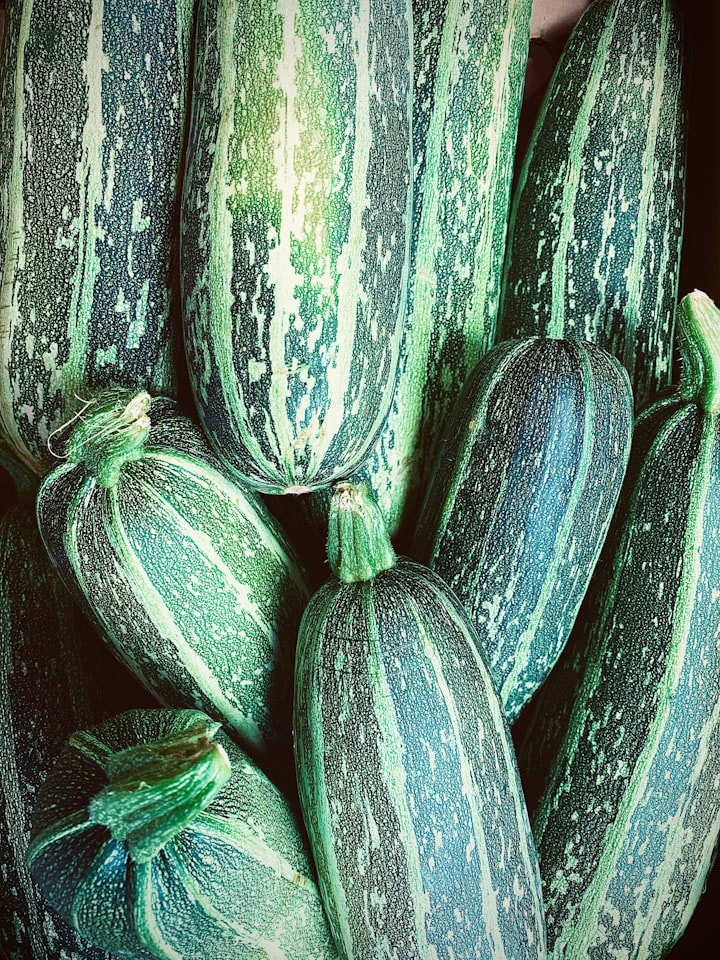
Zucchini is a versatile and nutritious vegetable that offers several benefits. Here are some of the key advantages of including zucchini in your diet:
Low in calories: Zucchini is incredibly low in calories, making it a great choice for weight management or calorie-conscious diets. It is composed of mostly water and contains very few carbohydrates, which can be beneficial for those watching their calorie intake.
High in fiber: Zucchini is a good source of dietary fiber, which aids in digestion, promotes satiety, and helps maintain bowel regularity. Adequate fiber intake is essential for a healthy digestive system.
Rich in vitamins and minerals: Zucchini is indeed rich in various vitamins and minerals, making it a nutritious addition to your diet. Here are some of the key vitamins and minerals found in zucchini:
Vitamin C: Zucchini is a good source of vitamin C, which is essential for a healthy immune system, collagen production, and antioxidant protection.
Vitamin A: Zucchini contains vitamin A in the form of beta-carotene, which is important for vision health, immune function, and healthy skin.
Vitamin K: Zucchini is a decent source of vitamin K, which plays a crucial role in blood clotting and bone health.
Potassium: Zucchini is a good source of potassium, an electrolyte that helps maintain fluid balance, regulate blood pressure, and support proper muscle and nerve function.
Manganese: Zucchini contains manganese, a trace mineral that plays a role in bone health, metabolism, and antioxidant defense.
Magnesium: Zucchini provides a small amount of magnesium, which is involved in hundreds of biochemical reactions in the body, including energy production, nerve function, and muscle contraction.
Folate: Zucchini contains folate, a B-vitamin that is important for DNA synthesis, red blood cell formation, and proper fetal development during pregnancy.
Copper: Zucchini contains a trace amount of copper, which is involved in the production of red blood cells, collagen synthesis, and iron absorption.
While zucchini offers a range of vitamins and minerals, it's important to consume a diverse diet to ensure you're meeting your overall nutritional needs.
Antioxidant properties: Zucchini contains phytonutrients like carotenoids (including beta-carotene), lutein, and zeaxanthin, which possess antioxidant properties. These antioxidants help protect the body's cells from damage caused by free radicals, reducing the risk of chronic diseases like heart disease and certain cancers.
Hydration: Zucchini can contribute to hydration due to its high water content. Hydration is essential for maintaining overall health and well-being as water is involved in numerous bodily functions. Here's how zucchini can help with hydration:
High water content: Zucchini is made up of approximately 95% water, which makes it an excellent choice for increasing fluid intake. Consuming foods with high water content can aid in maintaining hydration levels in the body.
Electrolyte balance: Zucchini contains electrolytes such as potassium, which is important for maintaining fluid balance in the body. Electrolytes help regulate the distribution of water between cells and throughout the body, ensuring proper hydration.
Satiety and thirst quenching: Foods with high water content, like zucchini, can help satisfy hunger and thirst simultaneously. Including zucchini in meals or as a snack can help keep you hydrated and promote feelings of fullness.
It's worth noting that while zucchini can contribute to hydration, it shouldn't be relied upon as the sole source of fluids. Drinking an adequate amount of water throughout the day is still essential to maintain proper hydration. The amount of water needed varies depending on factors such as activity level, climate, and individual needs. It's generally recommended to drink at least eight cups (64 ounces) of water per day, but individual requirements may vary.
Additionally, other hydrating foods such as fruits, vegetables, soups, and herbal teas can complement the hydration benefits of zucchini.
Versatility in cooking: Zucchini is incredibly versatile in the kitchen. It can be enjoyed raw in salads, spiralized into noodles (known as zoodles) as a low-carb pasta alternative, grilled, roasted, sautéed, or added to various dishes such as stir-fries, soups, and casseroles. Its mild flavor and tender texture make it a versatile ingredient that can be incorporated into a wide range of recipes.
Supports eye health: Zucchini contains carotenoids like lutein and zeaxanthin, which are essential for maintaining eye health. These compounds are associated with a reduced risk of age-related macular degeneration (AMD) and cataracts.
May aid in blood sugar control: Zucchini is a low-glycemic food, meaning it does not cause a sharp increase in blood sugar levels. Its high fiber content and low carbohydrate content make it a suitable choice for individuals with diabetes or those looking to regulate their blood sugar levels.
It's important to note that individual results and experiences may vary, and it's always advisable to consult with a healthcare professional or registered dietitian before making significant changes to your diet.






Comments
There are no comments for this story
Be the first to respond and start the conversation.